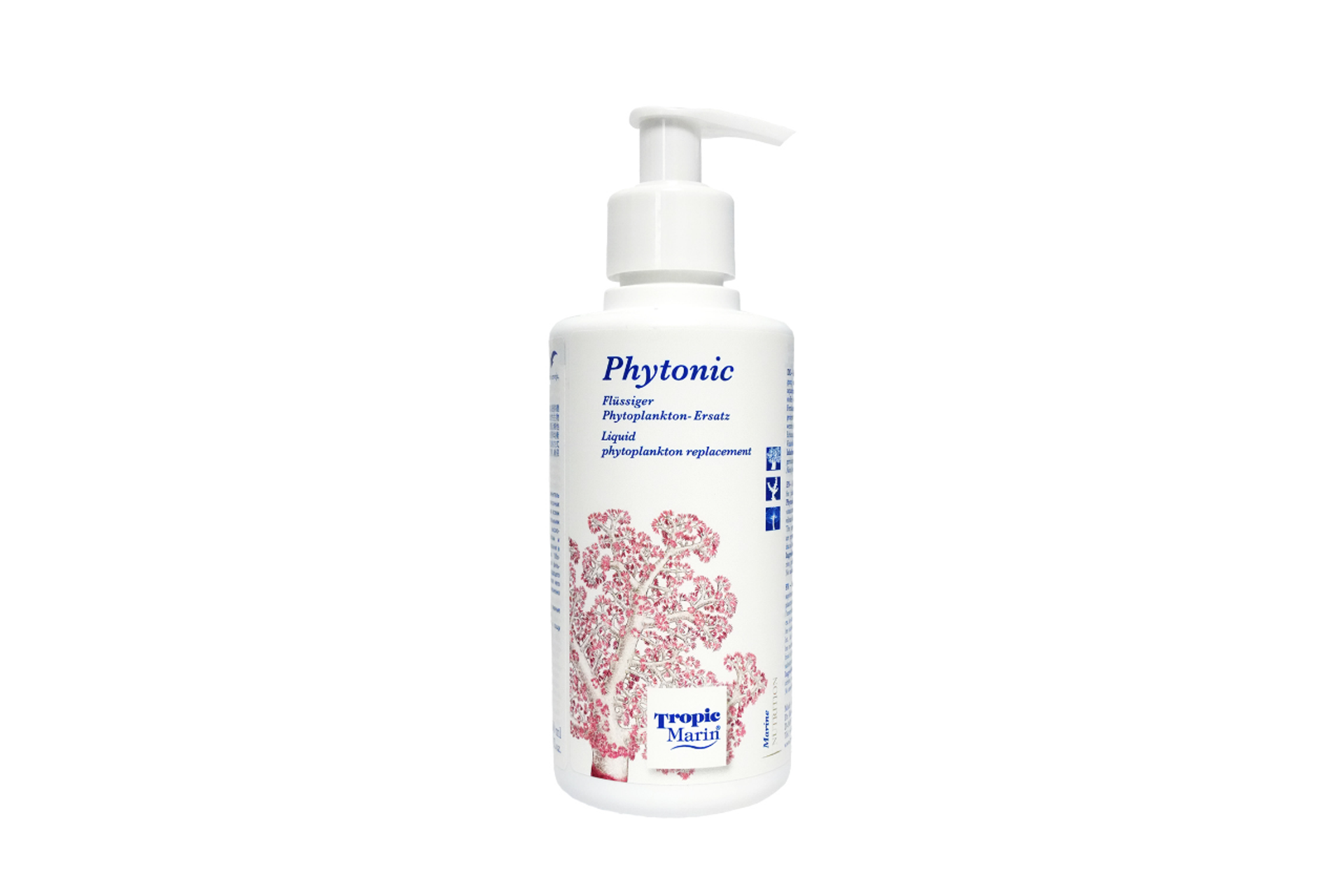Pheeding Phytonic

We get a lot of questions around here. Even before social media, we'd get emails asking us for information on a wide variety of aquarium related topics. We get inquiries as far ranging as “will a Domino Damsel get along with my Azure Damsel” or “what's the right water temperature for a Catalina Goby” to “how big of a tank do I need for this Sailfin Tang when it is fully grown?” As you can probably guess, some of these questions are easier to answer than others. One of the more common questions we get is “should I feed my corals?” This question is really easy, and the answer is a resounding yes.
One of the biggest mistakes that new coral keepers make is thinking that because their corals are photosynthetic, they will thrive on light alone and this concept is deeply flawed. Even in mariculture situations, corals are often situated at a certain water depth where planktonic foods are the most prevalent in that area. Every coral you can buy has a visible polyp structure and that structure only exists for one reason: eating. There are many corals that are capable of surviving in your tank without direct feeding, but they'll all grow faster and show better colors if you feed them. FEED YOUR CORALS (and clams and feather dusters, etc).
The next obvious question is what to feed your corals? This is a much more complex question, with a myriad of “correct” answers. LPS (large polyp stony) corals can take surprisingly large, meaty meals, approaching what small anemones can eat! (Yes, you should also be feeding your nems too, but that is another article.) For smaller polyps corals like SPS (small polyp stony), soft corals, polyps and leathers, they're going to do best on planktonic foods.
One of the easiest ways to get these types of corals enough high-quality food is the Tropic Marin product, Phytonic. This is a great way to get all your filter feeders a diet dense in amino acids, HUFAs (highy unsaturated fatty acids) as well as the vitamins and minerals they need to thrive, grow quickly and display their best colors. Phytonic is a mix of planktonic microalgae, brewer's yeast, glycerine and purified water that is then “canned” in a low temperature process developed to preserve all the nutrients and make them shelf stable so they can be stored at room temperature, though they will last longer if kept in a cool, dark space.
Tropic Marin Phytonic is a very concentrated, liquid solution, which makes it easy to feed. It is packaged in two sizes, a 50ml and a 250ml. The 250 size comes in a pump container and each press on the pump will give you one milliliter of product – super convenient! The 50ml size includes a syringe for accurate measurement as well. When using it, shake either bottle well before using it. Disperse the correct dosage for your system directly into the aquarium flow, or even the return from the filtration system. We always recommend the 250ml size as it is more cost effective, easier to use, and just as stable, so it isn't going to go bad and you are going to feed it all eventually!
When figuring out the dose for your tank, Tropic Marin has a great calculator here: https://www.tropic-marin-smartinfo.com/phytonic?lang=en. In case you are reading this and that url has changed, the range works out to be about 0.2 to 1.0 milliliters for every 55 gallons of aquarium volume per day. Don't go over the maximum dosage. Start with the minimum dosage and ramp up from there. In an ideal world, you should split the dosage up and do smaller doses a couple times (or more) per day. This allows more of the food to get utilized by your filter feeders. More food is getting eaten, means less goes to waste and the impact on the oxygen levels in the tank is decreased. Anytime you add food (any food) that doesn't get eaten, that food uses up oxygen when it decomposes – this is a component of something called biological oxygen demand.
There are more complex ways to feed your aquarium filter feeders, but there aren't any better ones that are remotely this easy! If you're trying to get your small polyped corals, softies, leathers, zoanthids, palys, clams, feather dusters and anything else that consumes tiny foods, a high-quality diet, with minimum fuss, you should investigate Tropic Marin Phytotonic. After a few days of use, you should see better polyp extension, and after a few weeks, you should see better color retention and faster growth. Head to your LFS and ask them about getting you a 250ml bottle of Tropic Marin Phytotonic today! As always, tell them Quality Marine sent you!